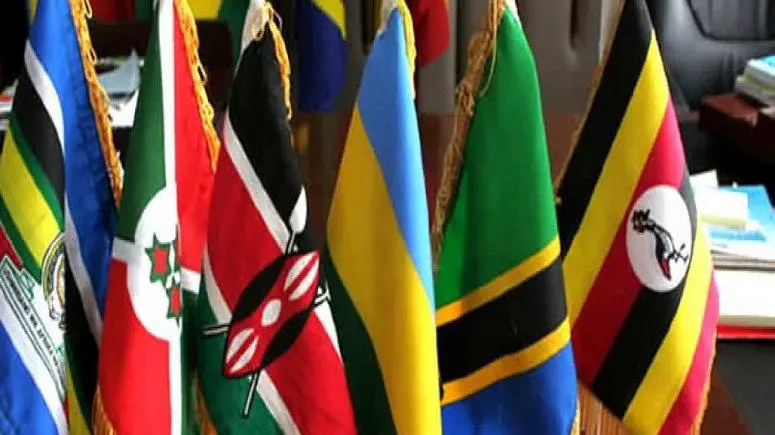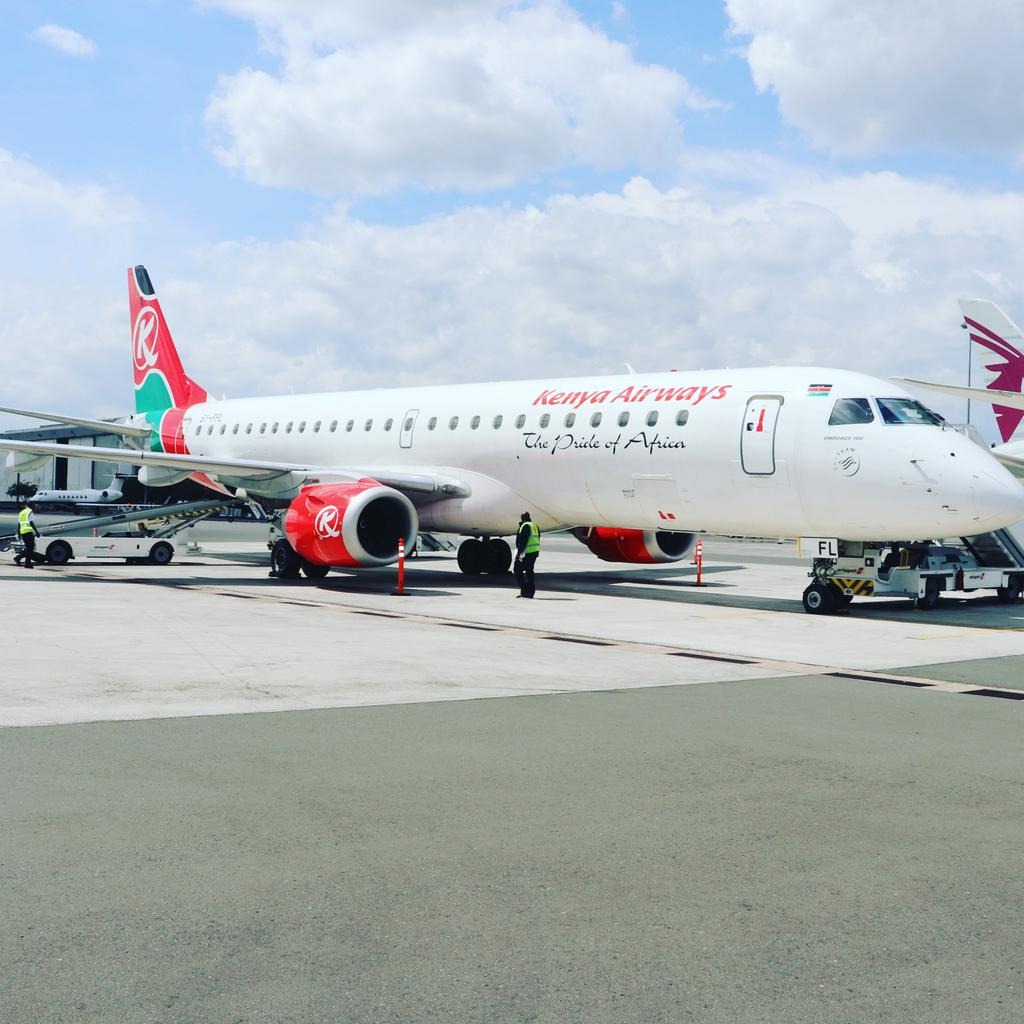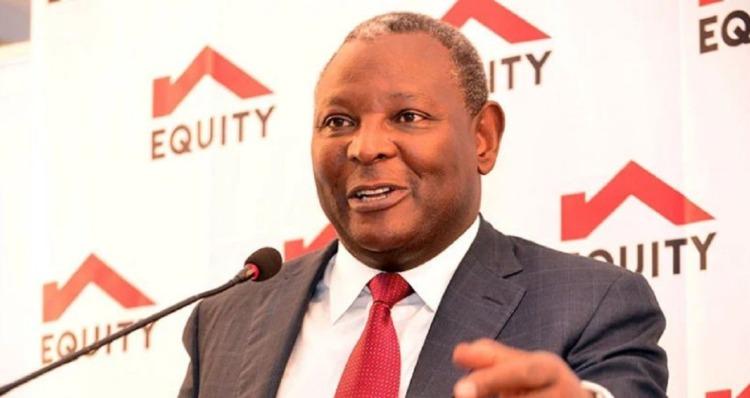- Kenyan Farmers Receive $2M Boost from Africa Fertiliser Financing Mechanism
- Brace for High Interest Rates for a Longer Period World Bank Warns Kenya
- Kenya-Ethiopia Trade Relations: Legislators Advocate for Policy Alignment to Boost Ties
- Visualising the state of debt in Africa 2024
- Abu Dhabi radiates optimism as over 300 startups join AIM Congress 2024
- TLcom Capital Raises $154 million in Funding to Boost Its African Growth
- Africa’s $824Bn debt, resource-backed opaque loans slowing growth — AfDB
- LB Investment brings $1.2 trillion portfolio display to AIM Congress spotlight
Browsing: Featured
Digital health solutions provider Carepay has this week announced a new partnership with Jubilee Health Jubilee Health Insurance.
The Kenyan based company which operates M-TIBA platform says the partnership will see them roll out Jubilee’s digital insurance products on the M-TIBA platform.
The partners are currently developing a new range of mobile-first health policies for groups, saccos and chamas.
Under the new deal, Jubilee Health Insurance customers will be able to sign up and manage their health policies through M-TIBA’s mobile interface.
CarePay is also providing digital services through M-TIBA, including new member outreach, on boarding, claims handling and payments integration.
The partners are predicting that the rollout of convenient and cost-effective digital capabilities will support the growth of Kenya’s retail insurance segment by enabling more seamless product bundling and much wider access.
Jubilee Health Insurance Dr. Patrick Gatonga noted that there exists a lot of unexploited opportunities for insurers …
Of the 186.5 million people from around the world who cannot afford an energy-sufficient food diet, the vast majority are Africans.
This is according to a new report launched by the Food and Agriculture Organization of the United Nations (FAO), the UN Economic Commission for Africa (UNECA) and the African Union Commission (AUC).
Nutritious foods, such as fruits, vegetables and animal proteins, are relatively expensive when compared to staples such as cereals and starchy roots, and, the report argues, some of the reasons for this are systemic.
Evidence presented in the report shows that nearly three-quarters of the African population cannot afford a healthy diet of fruits, vegetable and animal proteins, and more than half cannot afford a nutrient-adequate diet, which provides a mix of carbohydrates, protein, fats, and essential vitamins and minerals to maintain basic health.
Even an energy-sufficient diet, which supplies a bare minimum of energy and little …
Women-owned and led SMEs (WSMEs) in Kenya face structural barriers that limit their ability to secure contracts with large companies for growth.
This is according to an IFC study published today that recommends ways banks and large businesses can better support female entrepreneurs.
The study was commissioned as part of IFC’s wider efforts to connect women entrepreneurs to new markets and is titled Sourcing2Equal Kenya: Barriers and Approaches to Increase Access to Markets for Women-Owned Businesses.
It found that women-owned businesses face challenges accessing finance, business networks, and market information, hence limiting their ability to take on large contracts.
The study found that there is a 9 percent gender gap in the participation of SMEs supplying directly to corporate Buyers, commonly known as tier 1 suppliers, with WSMEs receiving fewer contracts among the SME respondents in this study.
However the survey indicates that there is 13 percent more WSMEs than …
Kenyan-based lender Family Bank Limited has officially rang the bell to mark the listing and the commencement of trading of its corporate bond at the Nairobi Securities Exchange (NSE).
The country’s Capital Markets Authority gave a nod to list the first tranche of its Medium Term Note under the Fixed Income Market Segment at the NSE after a successful offer that raised a total of US$40.6 million against a US27.8 million target, marking a subscription of 147.3 percent.
Early in June, the Authority allowed the mid-tier lender to issue an US$74.1 million multicurrency Medium Term Note (MTN) programme in tranches.
“The response that this bond has generated demonstrates the confidence the market has in the Family Bank brand despite constrained liquidity in the money market as evidenced by the tough economic environment due to the COVID-19 pandemic,” said Family Bank Chief Executive Officer Rebecca Mbithi.
“The capital raised will definitely …
A new report has revealed that ICT and Agriculture are the leading host sectors for Micro, Small and Medium-sized Enterprises (MSMEs) in Kenya.
The 2021 MSMEs Survey Report by Kenya Bankers Association also ranks manufacturing and construction among the dominant hubs for the enterprises that collectively create an estimated 15 million employment opportunities in the economy.
The study, conducted by the KBA Centre for Research on Financial Markets and Policy in collaboration with the Japan International Cooperation Agency (JICA) in May this year, further indicates over 90 percent of the 279 MSMEs sample analyzed were registered, signaling a high level of formalization.
The Findings
Based on entrepreneur characteristics, majority of MSMEs owners are males at 77 percent, highly educated with 54.5 percent having a bachelor’s degree level of education.
In addition, close to two-thirds or 63 percent of enterprise owners had been in employment for more than six years before …
After facing unprecedented changes in the wake of the COVID-19 pandemic, Small and Medium Enterprise (SME) confidence in Sub-Saharan Africa is on the rise, according to the latest research by Mastercard.
The inaugural Middle East and Africa (MEA) SME Confidence Index found 74 percent of SMEs in Sub-Saharan Africa are optimistic about the next 12 months. In fact, 68 percent of SMEs in Sub-Saharan Africa are projecting revenues that will either grow or hold steady. Almost half at 48 percent are projecting an increase.
Upskilling, training, development support and access to credit for future growth
As many regional economies gradually enter the normalization and growth phase, and social restrictions continue to ease, small and medium sized businesses in Sub-Saharan Africa have identified upskilling staff for the future (73%), access to training and development support (69%), and easier access to credit (69%), as the top three drivers for growth.
Among all …
The East African Community has tabled before the East African Legislative Assembly the budget estimates for the 2021/2022 Financial Year totaling US$91,784,296.
The Chairperson of the Council of Ministers and Kenya’s Minister for EAC, Adan Mohamed, in the Budget Speech read on his behalf by Chief Administrative Secretary, Ken Obura, said that the 2021/2022 budget was coming at a time the COVID-19 pandemic had ravaged economies through lockdowns and economic shutdowns that had affected economic performance in the entire region negatively.
The 2021/2022 Budget is themed Economic Recovery through Industrialization and Inclusive Growth.
On priorities for the 2021/2022 FY, Mohamed said that the EAC would focus on 10 priority areas.
These are private sector development, peace and security, health/covid-19 response and trade development.
Others are infrastructure development, EAC digitalization agenda, agriculture, nutrition, biodiversity, environment and circular economy AMONG OTHERS.
Here is how the monies were allocated for EAC Organs and …
Kenya’s national carrier Kenya Airways PLC has announce the resumption of flights to Heathrow, London from Nairobi’s Jomo Kenyatta International Airport (JKIA) after a three-month break.
The direct flights, which begun on 26th of June 2021, follows the lifting of the suspension of flights to from the United Kingdom by the Government of Kenya.
The ban was effected on April 9, in retaliation of a similar move by the UK, when they placed Kenya in a list of its prohibited destination.
According to the airline, flights from London will include a one-stop connection through Nairobi to the rest of Kenya and Africa’s key destinations.
Commenting on the development, the airline’s Chief Commercial and Customer Officer Julius Thairu said the the resumption of flights to London, United Kingdom is in line with KQ’s plans to grow and expand their routes even as restrictions related to COVID-19 lift.
“The move will positively …
Kenya’s Capital Markets Authority (CMA) has issued the first set of licenses to five coffee brokers in line with the Capital Markets (Coffee Exchange) Regulations, 2020.
In a statement, the Authority says the licenses will allow the brokers to carry out the role of coffee brokerage services at the Nairobi Coffee Exchange (NCE) with effect from 1 July 2021.
Meru County Coffee Marketing Agency Limited has been granted a full coffee broker licence, while others, which include Kipkelion Brokerage Company Limited, and Murang’a County Coffee Dealers Company have been granted conditional licences.
According to the Authority, they are expected to come into full compliance with the requirements of the Coffee Exchange Regulations within the next three months.
“The Authority is mandated to regulate the spot commodity markets in Kenya and in particular, the coffee commodity market according to Section 11(3) of the Capital Markets Act,” CMA said in a statement.…
The shareholders of Equity Group Holdings Plc have passed resolutions that will reinforce the governance structures of the Group, continue to diversify the Board composition, and also assure investors of dividend pay-out every year as long as the Company posts profits.
In a statement, the Group says shareholders voted for the Amendment of Articles 1 and 79 of the Articles of Association of the Company thereby reinforcing its governance structure and signaling the growing significance of Equity Group Foundation as the social impact investment arm and custodian of the purpose of the Group.
Speaking after the AGM, the Group Board Chairman Equity Group Holdings Plc (EGH Plc), Professor Isaac Macharia said the move will further strengthen the structures to ensure the Board is reinforced through diversified representation for effective oversight.
“In so doing, the shareholders have passed a resolution enabling shareholders with more than 12.5 percent shareholding to participate directly …














